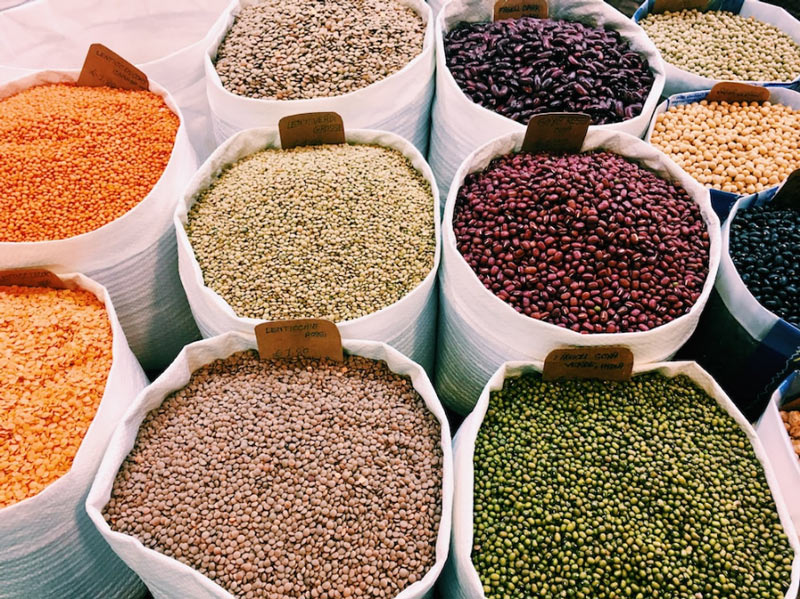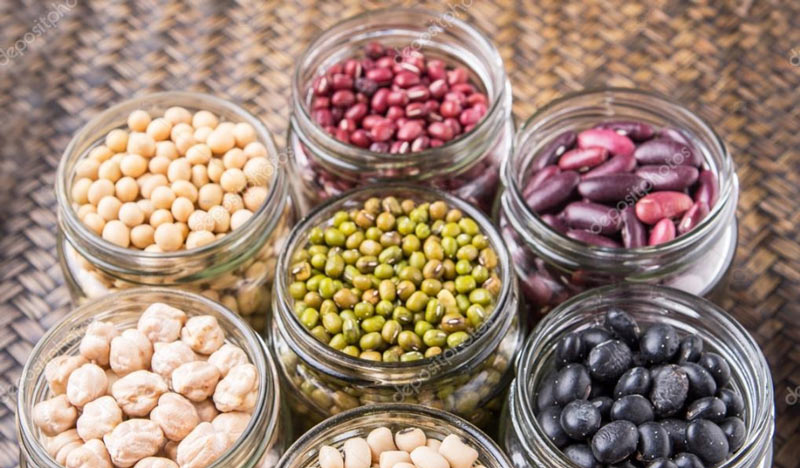If you’re looking for a way to add variety to your diet and ensure that you get the essential vitamins and minerals, then beans and legumes are excellent choices. They are hearty, nutritious, affordable, delicious, and versatile - providing endless opportunities for creative meal planning.
We will discuss some of the healthiest dry beans and legumes available today so that you can decide which ones best suit your taste buds and health goals.
Healthy Beans And Legumes

You Should Try Beans, and Legumes are plant-based foods that have been consumed for centuries worldwide. They are an excellent dietary fiber, vitamins, and minerals source and provide much protein per serving. Many types of beans and legumes are available in dry and canned forms, including black beans, chickpeas (garbanzo beans), kidney beans, lentils, navy beans, pinto beans, split peas, soybeans, and more.
Dry Beans: Dry beans are seeds harvested from plants such as Phaseolus vulgaris (common bean), which includes the most common varieties like black beans, red kidney, or cannellini beans. These must be soaked overnight before use to reduce their cooking time.
Legumes: Legumes are edible seeds enclosed in a pod, such as peanuts, green peas, or soybeans. They can come in dry and canned form but typically have shorter soaking times than beans.
Benefits of beans and legumes

- High in Fiber: Beans and legumes are high in both soluble and insoluble dietary fiber, which can help to lower cholesterol levels, regulate blood sugar levels, aid in digestion, improve heart health, and even help you lose weight.
- Rich in Antioxidants: Many beans and legumes contain powerful antioxidants that may protect against cancer and other chronic diseases.
- High in Protein: Beans and legumes are a great source of plant-based protein—making them an especially attractive choice for vegetarians and vegans.
- Low Glycemic Index: For those who need to watch their blood sugar levels, beans, and legumes have a low glycemic index—which means that they are digested slowly, which helps to regulate blood sugar levels.
- Heart Healthy: Beans and legumes can help to lower cholesterol levels and reduce the risk of heart disease.
- Easy to Digest: Many beans and legumes contain prebiotics—which can help to promote healthy digestion by providing food for the beneficial bacteria in your gut.7. Environmentally Friendly: Beans and legumes require significantly less water than other sources of protein, such as beef or chicken, thus making them an excellent choice for those who want to reduce their environmental footprint.
- Variety & Versatility: Beans and legumes come in various shapes, sizes, colors, and flavors—providing endless opportunities for creative meal planning.
- Affordable: Beans and legumes are some of the most affordable sources of protein available—making them an ideal choice for those on a tight budget.
- Delicious: When cooked properly, beans and legumes can be incredibly flavorful, making them a great addition to any meal.
Focus on kidney beans as a good source of vitamins.
Kidney beans are an excellent source of vitamins B1, B6, and A and minerals such as folate, iron, phosphorus, magnesium, and more. They are also packed with dietary fiber, which can help to improve digestion, regulate blood sugar levels and support heart health.
Kidney beans can be used in dishes such as stews, soups, chili, or salads. They can also be mashed or puréed for dips & spreads and added to veggie burgers to boost nutrition. With their delicious taste and high nutrient content, it's no wonder that kidney beans are one of the most popular legumes consumed around the world today.
Chickpeas for their iron, zinc, magnesium, and calcium content
Chickpeas are an incredibly nutritious legume high in protein, iron, zinc, magnesium, and calcium. They are a great source of dietary fiber that can help improve digestion and regulate blood sugar levels. Chickpeas have a delicious nutty flavor that can be used in salads, soups, curries, or dips & spreads.
They also make a great addition to veggie burgers and can be used as an egg replacer in baking recipes. With their high nutrient content and versatility, it's easy to see why chickpeas have become one of the most popular legumes consumed today.
Focus on lentils for their protein contentLentils are an excellent source of plant-based proteins, dietary fiber, and other essential vitamins and minerals. They are low in calories, fat-free, gluten-free, and easy to digest, making them an excellent choice for a healthy diet.
Lentils can be used in soups, stews, or salads and added to burgers or veggie patties. With their nutty flavor and high nutrient content, it's no wonder that lentils are one of the most popular legumes around today.
Best Ways to Eat Healthy Beans And Legumes
Beans and legumes can be cooked in various ways to make them part of a healthy diet. Here are some tips for cooking beans and legumes:
• Soak your beans overnight before cooking to reduce the cooking time and increase their digestibility.
• When boiling, add salt or an acid, such as lemon juice, to preserve texture and flavor at the end of the cooking process.
• Roast dry beans with herbs, spices, and vegetables for an added layer of flavor.
• Pressure cook beans, as this is one of the quickest preparation methods.
• Add cooked beans and legumes to soups, stews, salads, or veggie burgers for an added boost in nutrition.
• Purée cooked beans or legumes to make dips & spreads, sauces, and other dishes.
Beans and legumes are an incredibly versatile and nutritious food that can be enjoyed in various ways for a healthy diet.
With their high nutrient content, low cost, and ease of preparation, it's no wonder why beans and legumes have become one of the most popular plant-based foods consumed today.
FAQS
Is it OK to eat beans and legumes every day?
Yes, beans and legumes can be enjoyed daily as a healthy diet. It is recommended to aim for 4-5 servings per week.
Can I eat rice every day?
Yes, you can eat rice every day as long as it is part of a balanced diet. Rice should be eaten in moderation and with other nutritious foods such as fruits, vegetables, and lean proteins.
Is roasted chana good for health?
Yes, roasted chana (chickpeas) are a great source of protein and other essential vitamins and minerals. They are low in calories, fat-free, gluten-free, and easy to digest, making them an excellent choice for a healthy diet. Roasted chickpeas can be enjoyed as a snack or added to salads, soups, curries, or veggie burgers for an added boost in nutrition.
Conclusion
From chickpeas and lentils to alfalfa and fava beans, you can add healthy and delicious beans and legumes to your diet. Incorporating more beans into your diet is a wonderful way to get more complex carbohydrates, proteins, minerals, vitamins, and antioxidants. Not only do these sources contain excellent health-promoting features for the body, but some preliminary research has also found promising evidence that certain beans may play a role in reducing heart disease risk factors.

How Long Does Vertigo Last
Jul 30, 2023

Benefits Of Cucumber
Apr 24, 2023

Winning the Battle Against Laryngitis: Natural Remedies that Work
Aug 03, 2023

Ways to Get Rid of Bloating
Apr 30, 2023

What is Neuralgia
Apr 20, 2023

Benefits of Moringa
Jul 30, 2023

How to Improve Vo2 Max
Apr 26, 2023

Common Causes of Inner Knee Pain
Apr 24, 2023



